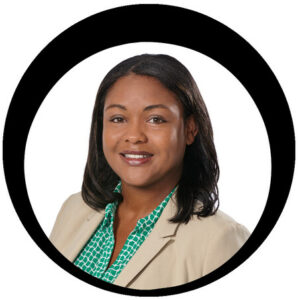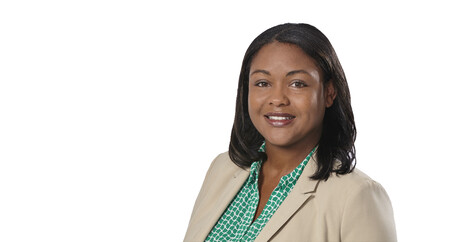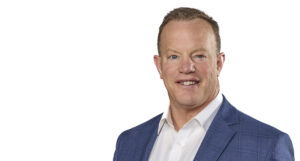Wealth Management Consultant Team Lead Iris Lewis-Beasley gives so much to others. In fact, she’s even donated a kidney.
How did you get started in the trust business?
 Typically the trust industry is not something you decide you are going to do, and that was the case with me.
Typically the trust industry is not something you decide you are going to do, and that was the case with me.
I started at a community bank as a teller. Within a few months, we acquired another financial institution that had trust business and we needed more people to move those accounts over. So, I became a trust assistant. Within five years of hiring, I had worked my way up to trust operations manager.
Once I moved over to trust, I felt like I was in the right place. Trust management requires attention to detail and a good personality, because sometimes you are managing an individual’s entire financial life. It was just a great fit for me.
What does a Wealth Management Consultant at Cheetah do?
We help new clients prepare to go-live on Cheetah software. We want to make that conversion from their old software to their new software as seamless as possible. We help the client identify who is going to do what and how they are going to do it. We shadow their processes and help translate them into new ones. It’s about using Cheetah in the best way.
I love when a client recognizes that there is something they can change that will make their life easier. I love seeing the light go on in their brain. It sends chills. It’s just amazing. Seeing our clients be successful is almost addictive.
What’s it like to work for Cheetah?
I started at the company in September 2015, and by mid-October my husband’s kidneys were failing. I got tested and I was a match to be a donor. So, I hadn’t been with the company that long and I had to take 8 weeks off to donate my left kidney and recover.
The company, and especially Adam (CEO Adam Unger), had my back 100 percent. They provided so much support and stuck by me while I went through it. Adam told me not to worry about work, and instead to worry about recovering and taking care of my family. That loyalty, I’ve never forgotten it. Joining Cheetah was the best career choice I have made in my life.
My husband is doing fabulous, but I still tell him that if he acts up I’m repossessing my kidney.
You give back a lot to your community in Decatur, Ill. Where does that passion for service come from?
Love is my primary motivator. But I’ve also lived through some experiences that make me want to make sure that no one falls through the cracks. I experienced the loss of my son at a young age. He contracted beta strep at childbirth. We were back and forth to the doctor’s office, but he didn’t get the care he needed from the medical community, and he died at 3 months old. It was a preventable death, and that’s why I’m passionate about serving at-risk populations in Decatur and making sure everyone has access to healthcare.
What do you do when you’re not working or giving back?
I’m a trained chef. I have a culinary arts degree. So, when I’m not working, I’m cooking. I cook from scratch every day and I love it. My passion for cooking comes from my family. My Grandma Juanita was amazing in the kitchen. She taught me to cook at an early age, and my mom gave me a lot of responsibility. By the time I was 11 years old I was cooking full meals.




